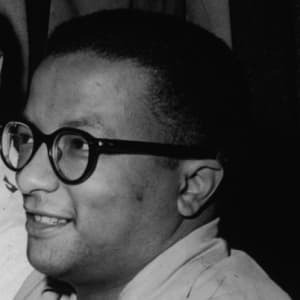
Hannah Arendt
Hannah Arendt gained much attention for her writings on totalitarianism and Jewish affairs after World War II.
Synopsis
Born in Germany in 1906, philosopher Hannah Arendt gained much attention for her writings on totalitarianism and Jewish affairs after World War II. Arendt's Origins of Totalitarianism (1951) addressed the rise of the totalitarian state out of the collapse of traditional nation-states. Following the war crimes trial of Adolph Eichmann, she wrote Eichmann in Jerusalem (1963). She died in New York City in 1975.
Early Life and Education
Born Johanna Arendt on October 14, 1906, in Hanover, Germany, Hannah Arendt was one of the most famous political philosophers of the 20th century. She came from a Jewish family and lost her father at an early age. She studied at several universities, including the University of Marburg. There, Arendt worked with Martin Heidegger for a time. According to some reports, she and Heidegger were also romantically involved.
Arendt completed her Ph.D. at the University of Heidelberg in 1928, after writing her doctoral thesis on Saint Augustine under the direction of Karl Jaspers. The following year, she married Gunther Stern. With the rise of the Nazi Party in Germany, Arendt soon found herself in trouble for gathering evidence of the regime's anti-Semitism.
Career Highlights
In 1933, Arendt fled her native Germany for the relative safety of Paris, France. There, she worked for Youth Aliyah, an organization that helped rescue Jewish children from Eastern Europe. In 1940, Arendt married her second husband, Heinrich Blücher. Their wedded bliss was short-lived, however: The pair was soon interned at a concentration camp in Gurs, France. After managing to escape, the couple made their way to the United States in 1941.
Arendt's wartime experiences may have informed her first major work, 1951's The Origins of Totalitarianism. In this widely acclaimed book, she explored the regimes of Adolf Hitler and Joseph Stalin. Also in 1951, Arendt became a U.S. citizen.
Another philosophic masterwork followed in 1958: The Human Condition. In this work, Arendt drew from ancient Greek culture to define and critique the modern world. She examined human endeavors of labor, work and action, focusing on how these endeavors played out in four aspects of life—political, social, private and public.
In 1961, Arendt covered the trial of infamous Nazi war criminal Adolf Eichmann, held in Jerusalem, for The New Yorker magazine. Her writings on the trial were later published as Eichmann in Jerusalem: A Report on the Banality of Evil (1963), and she was criticized for some of the views she expressed in the work. Among these views, Arendt posited that Eichmann was more of an ambitious bureaucrat than a figure of extreme evil.
Final Years
In 1967, Arendt became a professor of philosophy at the New School for Social Research in New York City. She had previously taught at the University of Chicago and Princeton University. In addition to exploring topical political issues in Crises of the Republic (1972), Arendt began to dig into the nature of thought itself: She began a three-volume work called The Life of the Mind, dividing the topic into thinking, willing and judging. She wouldn't live to complete the trilogy.
Arendt died of heart failure on December 4, 1975, in New York City. She was laid to rest on the campus of Bard College, in Annadale-on-Hudson, New York, where her husband had taught philosophy for many years (he had died in 1970). Much of Arendt's collection of books and papers are now stored at the college, which continues to run the Hannah Arendt Center for Politics and Humanities in her honor.
In 2012, Arendt's life was the subject of a German film, Hannah Arendt, written and directed by Margarthe von Trotta. Barbara Sukowa plays Arendt and Janet McTeer co-stars as Arendt's longtime friend, writer Mary McCarthy, in the biographical film.



